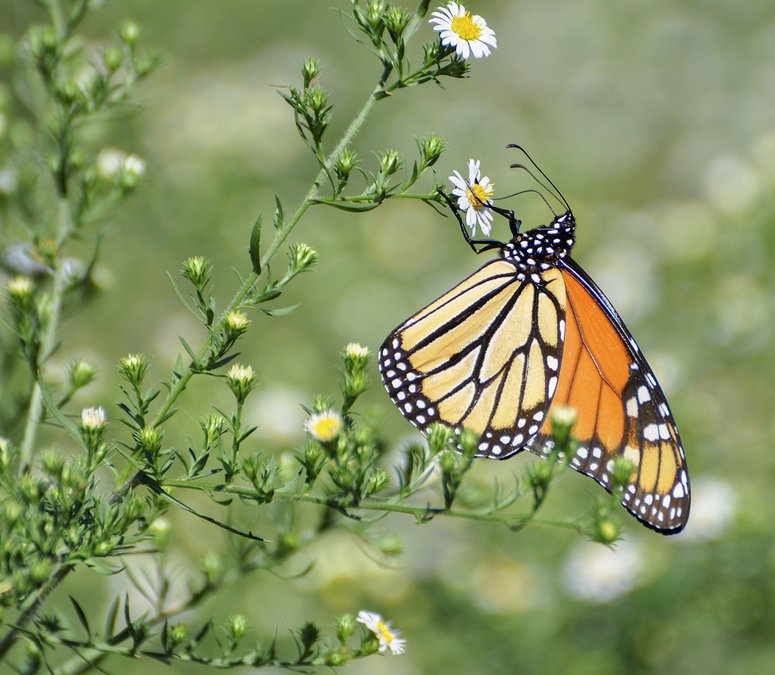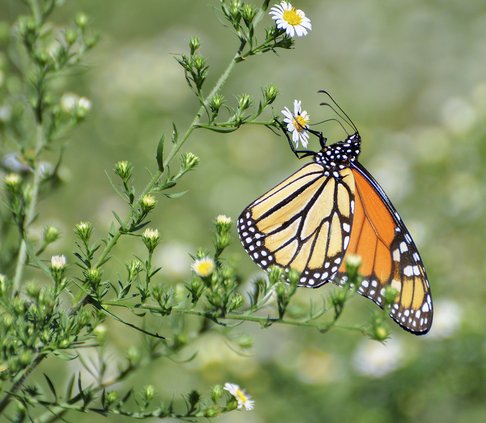SOCIAL CIRCLE – Over the past few winters, volunteers from across the Southeast and Gulf states provided more than 6,700 observations of monarch butterflies.
And for the upcoming winter, the partnership of universities, agencies and other organizations called “Monarchs Overwintering in Southeastern States” is requesting the public’s continued involvement in reporting sightings.
Sonia Altizer, a University of Georgia ecology professor and director of Project Monarch Health, said the information can help scientists determine if these iconic but declining butterflies “can overwinter as non-breeding adults in the southern U.S. and how this might affect future population numbers.”
Also, the monitoring will help document how winter-breeding activity might be affecting the annual migration of monarchs to Mexico. Understanding migration and overwintering behavior is crucial to conserving monarchs, a candidate for listing under the Endangered Species Act.
Thousands of monarchs stream across the South each fall on their way to wintering grounds in central Mexico. In the spring, the eastern population of the butterfly returns to the U.S. and Canada to breed.
But not all monarchs migrate to Mexico. Volunteer observations over the past two decades have helped scientists better understand how and why some monarchs breed throughout the winter in the southern U.S. Scattered reports also suggest that some monarchs can overwinter in coastal regions in a non-breeding state, like their wintering behavior in Mexico.
The public is asked to report monarch sightings now through March 1 in Georgia, the Carolinas, Florida, Alabama, Mississippi, Louisiana and Texas.
Observations are entered in Journey North’s online data portal, where the data is transformed into real-time mapping visualizations of monarch migration and breeding. Journey North is an organization designed to engage people across North America in tracking wildlife migration and seasonal change.
Susan Meyers, volunteer from Monarchs Across Georgia agreed. “Volunteers are vital to this effort. If you enjoy being outdoors and exploring your local ecosystem, this is an easy activity that can be done alone or with your family.”
Wildlife biologist Anna Yellin of the Georgia Department of Natural Resources said project partners are grateful to all who reported sightings last winter. “When we come together as a community as we have with this effort, we stand a better chance of protecting the monarch butterfly for future generations.”
How to take part
Step 1: Create a free account at journeynorth.org/reg.
Step 2: Learn how to report monarch sightings at journeynorth.org/monarchs.
Step 3: Now through March 1, submit monarch observations at journeynorth.org/sightings.

